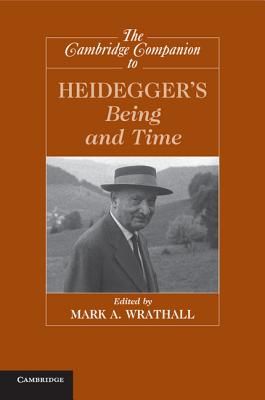Home
Historical Destiny and National Socialism in Heidegger's Being and Time / Edition 1
Loading Inventory...
Barnes and Noble
Historical Destiny and National Socialism in Heidegger's Being and Time / Edition 1
Current price: $84.00


Barnes and Noble
Historical Destiny and National Socialism in Heidegger's Being and Time / Edition 1
Current price: $84.00
Loading Inventory...
Size: OS
*Product Information may vary - to confirm product availability, pricing, and additional information please contact Barnes and Noble
There has been much debate over the relationship of Heidegger's philosophy—in particular his book
Being and Time
—to his practical involvement with National Socialism. Yet the question has never been addressed through a comparison of
with other texts on history and politics written at the time. Johannes Fritsche does this, providing a detailed interpretation of the relevant passages in
—especially sections 72-77 on fate, community, and society. He analyzes for comparison two other authors who explicitly regarded themselves as rightists—Adolf Hitler (
Mein Kampf
) and Max Scheler (
Formalism in Ethics
and other writings)—and two authors on the left—Georg Lukács (
History and Class Consciousness
) and Paul Tillich (
The Socialist Decision
).
Fritsche concludes that
is a brilliant summary of right-wing politics in general, which proposes the destruction of liberal society in order to regenerate an idealized community. In addition, Heidegger rejects positions on the right, such as Scheler's, that enabled their authors to distance themselves from the most extreme political rightists, and thus he paves the way for National Socialism.
, Fritsche demonstrates, must be seen as a clear case for the National Socialists and their project of revitalization of the
Volksgemeinschaft
, the community of the people.
Being and Time
—to his practical involvement with National Socialism. Yet the question has never been addressed through a comparison of
with other texts on history and politics written at the time. Johannes Fritsche does this, providing a detailed interpretation of the relevant passages in
—especially sections 72-77 on fate, community, and society. He analyzes for comparison two other authors who explicitly regarded themselves as rightists—Adolf Hitler (
Mein Kampf
) and Max Scheler (
Formalism in Ethics
and other writings)—and two authors on the left—Georg Lukács (
History and Class Consciousness
) and Paul Tillich (
The Socialist Decision
).
Fritsche concludes that
is a brilliant summary of right-wing politics in general, which proposes the destruction of liberal society in order to regenerate an idealized community. In addition, Heidegger rejects positions on the right, such as Scheler's, that enabled their authors to distance themselves from the most extreme political rightists, and thus he paves the way for National Socialism.
, Fritsche demonstrates, must be seen as a clear case for the National Socialists and their project of revitalization of the
Volksgemeinschaft
, the community of the people.


















